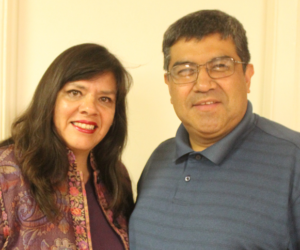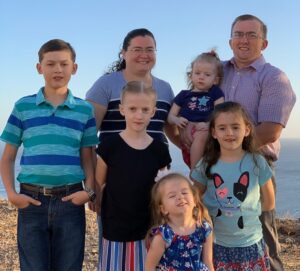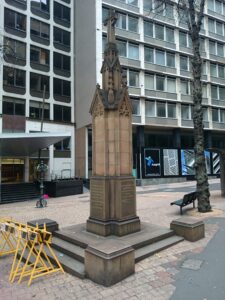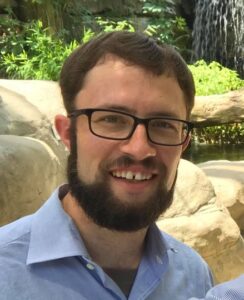 When our language helper, Lilee, asked me what kind of meat I like to eat, I attempted to say “kai kap muu kap NGUA” (chicken and pork and beef). But instead, I came up with ‘kai kap muu kap NGU” (chicken and pork and SNAKE)! Lilee gave me a funny look and replied in English, “Really?!” –K.R, Laos
When our language helper, Lilee, asked me what kind of meat I like to eat, I attempted to say “kai kap muu kap NGUA” (chicken and pork and beef). But instead, I came up with ‘kai kap muu kap NGU” (chicken and pork and SNAKE)! Lilee gave me a funny look and replied in English, “Really?!” –K.R, Laos
Three Long Years
Daniel and his friends who were taken captive and carried to Babylon probably thought they were going there as hostages, but we can see that they were really missionaries. Daniel was especially used to deliver a cross-cultural message for God.
The king chose them because of their nobility, their intelligence, and their good looks. Daniel chapter one describes them, “Children in whom was no blemish, but well favoured, and skilful in all wisdom, and cunning in knowledge, and understanding science, and such as had ability in them to stand in the king’s palace, and whom they might teach the learning and the tongue of the Chaldeans.” The king liked them with all these outstanding qualities, but he said, “Before I will use you, you must learn our language and culture.” A missionary may be well trained in theology and homiletics. He may be very spiritual and feel the call of God on his life. He may present himself well in the churches and communicate his burden effectively so that he raises financial support sufficient for overseas living. But when he arrives on the field, all of his spirituality and training means nothing to the people. If he has a message for them, they want it spoken clearly in their tongue and culture. After all, isn’t that we expect of a preacher? Would we attend a church where the pastor spoke with a distracting accent and had little understanding of our customs and way of life? This pastor might be somewhat embarrassing to us, regardless of how well-intentioned and sincere he was.
Daniel arrived in Babylon with godly wisdom, strong convictions, and the call of God; but that was not enough. Notice how long Daniel and his friends were required to study the learning and tongue of the Chaldeans. “And the king appointed them a daily provision of the king’s meat, and of the wine which he drank: so nourishing them three years, that at the end thereof they might stand before the king.” Maybe Daniel said, “Wow, that’s a long time to do nothing but study language and culture!” But he had no choice; it was the king’s requirement. Nebuchadnezzar knew what he wanted, and he knew how long it would take. At the end of those three long years, Daniel could deliver a message from God perfectly in the language of the king, and he also knew exactly how to put that message in the cultural framework of the Babylonian mind. There was never any misunderstanding caused by a bad accent or missed cultural clues. When Daniel spoke, people listened; and his message saved lives. It might be worth noting that Daniel did not have the gift of tongues—he worked to learn the language. With his ability to communicate well and his God-given ability to interpret dreams, he was granted a position in the king’s court.
Oh, that missionaries would realize that language and culture learning takes a good amount of time! And would to God that pastors and churches be patient while their missionaries invest three years in nothing but language and culture learning! Missionaries may feel tremendous pressure to produce results that satisfy the expectations of the folks back home (or maybe their own expectations.) May I suggest a three-year program that would prepare the missionary for what the king expected from Daniel and friends? The first year would be spent in linguistic training, language and culture learning methods, and other studies. This training (which should occur before leaving for the field) will help his learning of language and culture to be more rapid, accurate, and productive. The first two years on the field would be dedicated to moving about among the people, learning their language and culture. We should all realize that those two years truly are ministry—not just preparation for ministry. The missionary should attempt to share his faith in Christ, but not try to start a church or oversee the work of another missionary who needs to go home on furlough. He must resist the temptation to hire an interpreter and preach on a regular basis that way. The first two years on the field are critical for language learning. If it is not accomplished then, it probably will not be done at all or not be done well.
Three years of nothing but language and culture learning were a great investment in Daniel’s ministry. He never had a problem communicating after that. At one point there were some powerful men who hated him and wanted to destroy him. They hated him because he was righteous and would not take part in their dishonest practices. They hated him because they were racists. And they hated him because he loved God and they didn’t. But they did not despise him because he talked funny or was a cultural misfit.
Daniel lived a long life and probably stood before five kings. Communication with them was never a problem. Oh, that missionaries would learn this lesson from Daniel. Time invested in language and culture learning pays off! In Daniel’s case, it was not three long years; it was three short years and seventy-three long years of useful service for God!
 Our language tutor was teaching us to pray in the Indonesian language. We write out our prayer for his review and then read/pray them before class begins. My wife was thanking God for his mercy, but omitted an “h” sound in the middle of the word. She thanked God for his spider webs instead! —D.C.
Our language tutor was teaching us to pray in the Indonesian language. We write out our prayer for his review and then read/pray them before class begins. My wife was thanking God for his mercy, but omitted an “h” sound in the middle of the word. She thanked God for his spider webs instead! —D.C.







